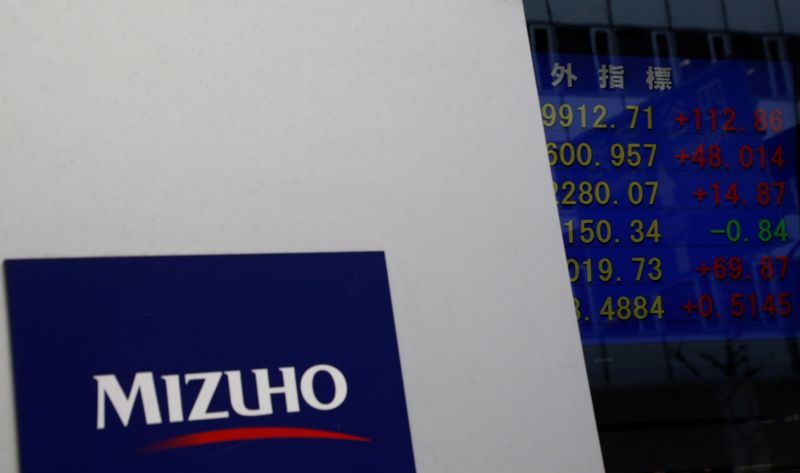TOKYO (Reuters) – Mizuho Financial Group Inc <8411.T> has seen coronavirus-related loan requests reach 17 trillion yen ($155 billion) since the outbreak, and is bracing for further demand from companies battling to revive their operations, its chief executive said.
The figure underscores the corporate impact of restrictions on movement and business imposed by the government to contain the spread of COVID-19, which has infected nearly 18,000 people in Japan and killed almost 1,000.
Since the first COVID-19 cases were reported in Japan in January, 225 companies have gone bankrupt as of Monday, showed data from Tokyo Shoko Research.
“As clients face liquidity problems, we will help with financing as appropriate,” Chief Executive Tatsufumi Sakai said in an interview last week for publication on Wednesday.
“But later, the problem may change from liquidity to solvency. At that stage, companies will need capital buffers to continue business.”
Japan’s third-largest lender said it has extended 10 trillion yen in loans and credit lines from requests it deemed virus-related based on discussions with the clients.
To support clients’ capital positions, Mizuho has secured over 100 billion yen for so-called mezzanine financing, such as subordinated debt and preferred stocks, Sakai said.
But banks themselves also expect a difficult year. Mizuho estimates 200 billion yen worth of credit-related costs in the year through March 2021, whereas bigger rivals Mitsubishi UFJ Financial Group Inc <8306.T> and Sumitomo Mitsui Financial Group Inc <8316.T> expect 450 billion yen.
“We can’t afford to lend to companies that are likely to turn into zombies,” said Sakai. “The crisis won’t be easy to overcome. It’s crucial for us and our clients to rebuild with an eye toward the post-coronavirus world.”
(Reporting by Takashi Umekawa and Takaya Yamaguchi; Editing by Christopher Cushing)



















